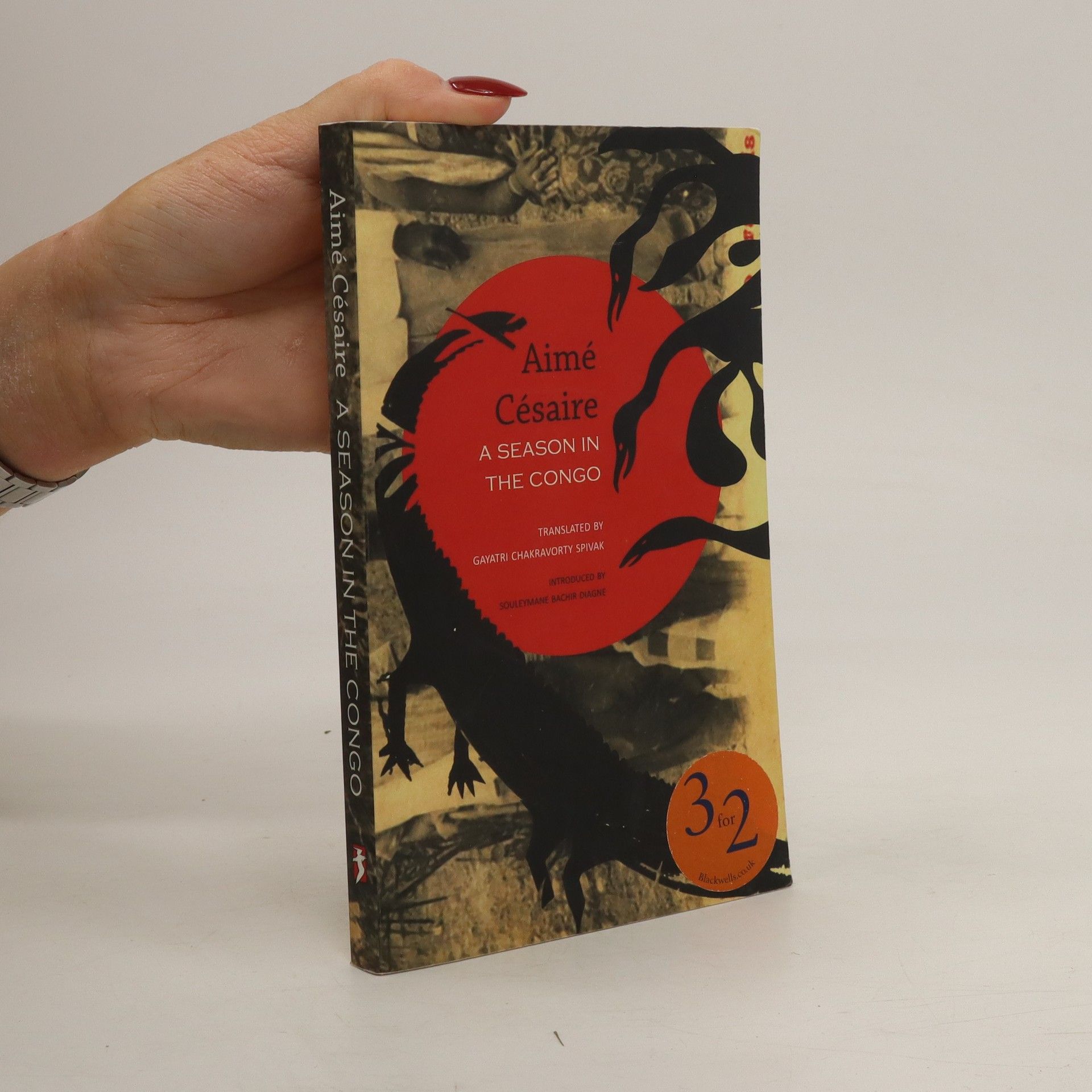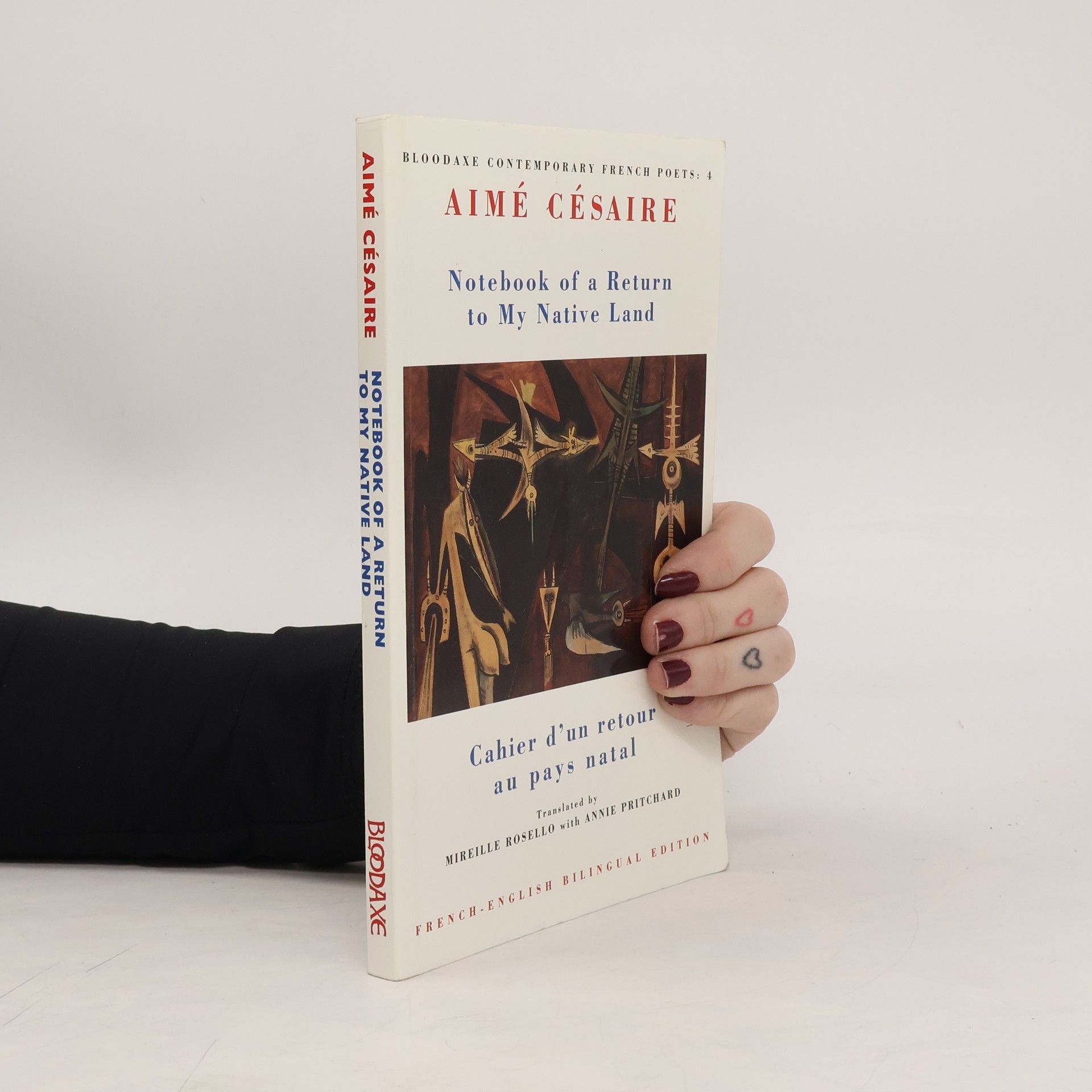This unique collection stands out as the sole bilingual edition, showcasing a fresh and innovative approach to its themes. It offers readers an opportunity to engage with the text in two languages, enhancing the experience and accessibility. The work challenges conventional narratives and invites readers to explore diverse perspectives, making it a significant addition to contemporary literature.
Aimé Césaire Libri
Aimé Césaire fu una voce fondamentale nella poesia e nella politica, il cui lavoro interrogò potentemente i temi dell'identità e del colonialismo. Radicato nel movimento della Négritude, la sua scrittura è caratterizzata dal suo profondo lirismo e urgenza. Césaire cercò la liberazione politica e culturale, e i suoi saggi e poesie divennero testi fondamentali per la lotta della diaspora africana per i diritti. La sua eredità risiede nella sua capacità di fondere la brillantezza artistica con l'attivismo politico, dando voce ai marginalizzati.







Discourse on Colonialism
- 96pagine
- 4 ore di lettura
This classic work, first published in France in 1955, profoundly influenced the generation of scholars and activists at the forefront of liberation struggles in Africa, Latin America, and the Caribbean. Nearly twenty years later, when published for the first time in English, Discourse on Colonialism inspired a new generation engaged in the Civil Rights, Black Power, and antiwar movements. Aimé Césaire eloquently describes the brutal impact of capitalism and colonialism on both the colonizer and colonized, exposing the contradictions and hypocrisy implicit in western notions of "progress" and "civilization" upon encountering the "savage," "uncultured," or "primitive." He reaffirms African values, identity, and culture, and their relevance, reminding us that "the relationship between consciousness and reality is extremely complex. . . . It is equally necessary to decolonize our minds, our inner life, at the same time that we decolonize society." An interview with Aimé Césaire by the poet René Depestre is also included.
Resolutely Black
- 150pagine
- 6 ore di lettura
Aimae Caesaire's work is foundational for colonial and postcolonial thought. In this unique volume, his responses to Frandcoise Vergaes' questions range over the origins of his political activism, the legacies of slavery and colonialism, the question of reparation for slavery and the problems of marrying literature to politics--
'We shall speak. We shall sing. We shall shout.' This blazing autobiographical poem by the founder of the négritude movement became a rallying cry for decolonisation when it appeared in 1939. Following one man's return from Europe to his homeland of Martinique, it is a reckoning with the trauma of slavery and exploitation, and a triumphant anthem for Black identity, one which reclaims and remakes language itself. 'Nothing less than the greatest lyrical monument of this time' André Breton 'A Césaire poem explodes and whirls about itself like a rocket, suns burst forth whirling and exploding' Jean-Paul Sartre 'The most influential Francophone Caribbean writer of his generation' Independent
A season in the Congo
- 160pagine
- 6 ore di lettura
This play by renowned poet and political activist Aime C sairerecounts the tragic death of Patrice Lumumba, the first prime minister of the Congo Republic and an African nationalist hero. A Season in the Congofollows Lumumba's efforts to free the Congolese from Belgian rule and the political struggles that led to his assassination in 1961. C saire powerfully depicts Lumumba as a sympathetic, Christ-like figure whose conscious martyrdom reflects his self-sacrificing humanity and commitment to pan-Africanism. Born in Martinique and educated in Paris, C saire was a revolutionary artist and lifelong political activist, who founded the Martinique Independent Revolution Party. C saire's ardent personal opposition to Western imperialism and racism fuels both his profound sympathy for Lumumba and the emotional strength of A Season in the Congo. Now rendered in a lyrical translation by distinguished scholar Gayatri Chakravorty Spivak, C saire's play will find a new audience of readers interested in world literature and the vestiges of European colonialism.
A Tempest
- 69pagine
- 3 ore di lettura
Césaire’s rich and insightful adaptation of The Tempest draws on contemporary Caribbean society, the African-American experience and African mythology to raise questions about colonialism, racism and their lasting effects.
This book presents the long-awaited English translation of Aimé Césaire's account of Toussaint Louverture, the iconic leader of the Saint-Domingue revolution—a slave revolt against French colonial rule that ultimately led to Haiti's independence. Saint-Domingue was the first modern nation to grapple with the complexities of colonialism. When Louverture emerged, various movements sought political autonomy, free trade, and social equality. The French Revolution introduced a powerful notion of universal liberty, particularly through the Declaration of Human Rights, which inspired wealthy free Black men in the colony to demand their rights. When these demands went unmet, enslaved Blacks rose in armed rebellion. This struggle for one class's liberation evolved into a broader revolution for equal rights for all. For true emancipation, Saint-Domingue required independence. Louverture actively embodied the Declaration's principles, proving that no race should be marginalized. He united disparate groups into a cohesive army, transforming a peasant uprising into a revolutionary movement that forged a nation-state. Césaire's profound historical and analytical insights illuminate Louverture's context and actions, making this work essential for students and scholars of critical theory, Latin American history, and those interested in colonialism and race.
......And the Dogs Were Silent/......Et les chiens se taisaient
- 322pagine
- 12 ore di lettura
Set against the backdrop of the Haitian Revolution, this three-act drama explores the life of Toussaint Louverture, portraying him as a multifaceted leader and visionary. Written during the Vichy regime, it captures the poignant encounters between rebels and colonial forces, enriched by a prophetic chorus. The narrative culminates in Louverture's betrayal and imprisonment, presenting a powerful critique of colonialism while celebrating Black resistance and triumph. This bilingual edition offers a fresh perspective on Césaire's dramatic artistry, distinct from his earlier works.
The definitive edition of the complete work of a master Caribbean poetThe Complete Poetry of Aime Cesaire gathers all of Cesaire's celebrated verse into one bilingual edition.
